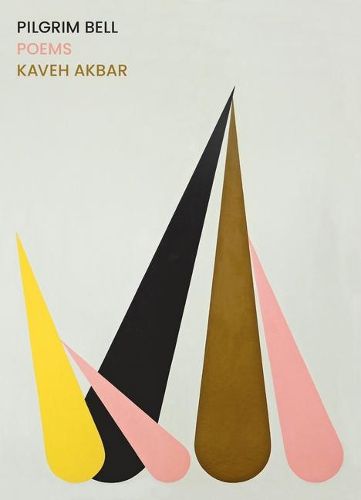Readings Newsletter
Become a Readings Member to make your shopping experience even easier.
Sign in or sign up for free!
You’re not far away from qualifying for FREE standard shipping within Australia
You’ve qualified for FREE standard shipping within Australia
The cart is loading…






Kaveh Akbar’s exquisite, highly anticipated follow-up to Calling a Wolf a Wolf
With formal virtuosity and ruthless precision, Kaveh Akbar’s second collection takes its readers on a spiritual journey of disavowal, fiercely attendant to the presence of divinity where artifacts of self and belonging have been shed. How does one recover from addiction without destroying the self-as-addict? And if living justly in a nation that would see them erased is, too, a kind of self-destruction, what does one do with the body’s question, what now shall I repair? Here, Akbar responds with prayer as an act of devotion to dissonance–the infinite void of a loved one’s absence, the indulgence of austerity, making a life as a Muslim in an Islamophobic nation–teasing the sacred out of silence and stillness.
Richly crafted and generous, Pilgrim Bell’s linguistic rigor is tuned to the register of this moment and any moment. As the swinging soul crashes into its limits, against the atrocities of the American empire, and through a profoundly human capacity for cruelty and grace, these brilliant poems dare to exist in the empty space where song lives–resonant, revelatory, and holy.
$9.00 standard shipping within Australia
FREE standard shipping within Australia for orders over $100.00
Express & International shipping calculated at checkout
Kaveh Akbar’s exquisite, highly anticipated follow-up to Calling a Wolf a Wolf
With formal virtuosity and ruthless precision, Kaveh Akbar’s second collection takes its readers on a spiritual journey of disavowal, fiercely attendant to the presence of divinity where artifacts of self and belonging have been shed. How does one recover from addiction without destroying the self-as-addict? And if living justly in a nation that would see them erased is, too, a kind of self-destruction, what does one do with the body’s question, what now shall I repair? Here, Akbar responds with prayer as an act of devotion to dissonance–the infinite void of a loved one’s absence, the indulgence of austerity, making a life as a Muslim in an Islamophobic nation–teasing the sacred out of silence and stillness.
Richly crafted and generous, Pilgrim Bell’s linguistic rigor is tuned to the register of this moment and any moment. As the swinging soul crashes into its limits, against the atrocities of the American empire, and through a profoundly human capacity for cruelty and grace, these brilliant poems dare to exist in the empty space where song lives–resonant, revelatory, and holy.